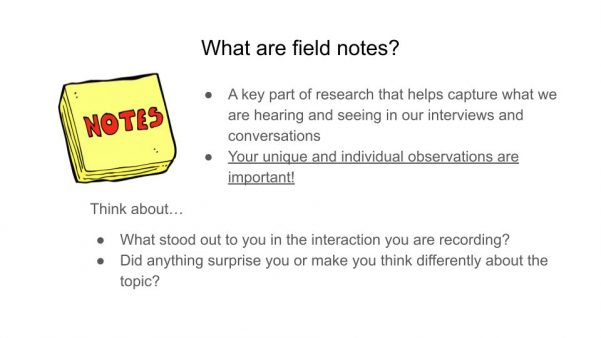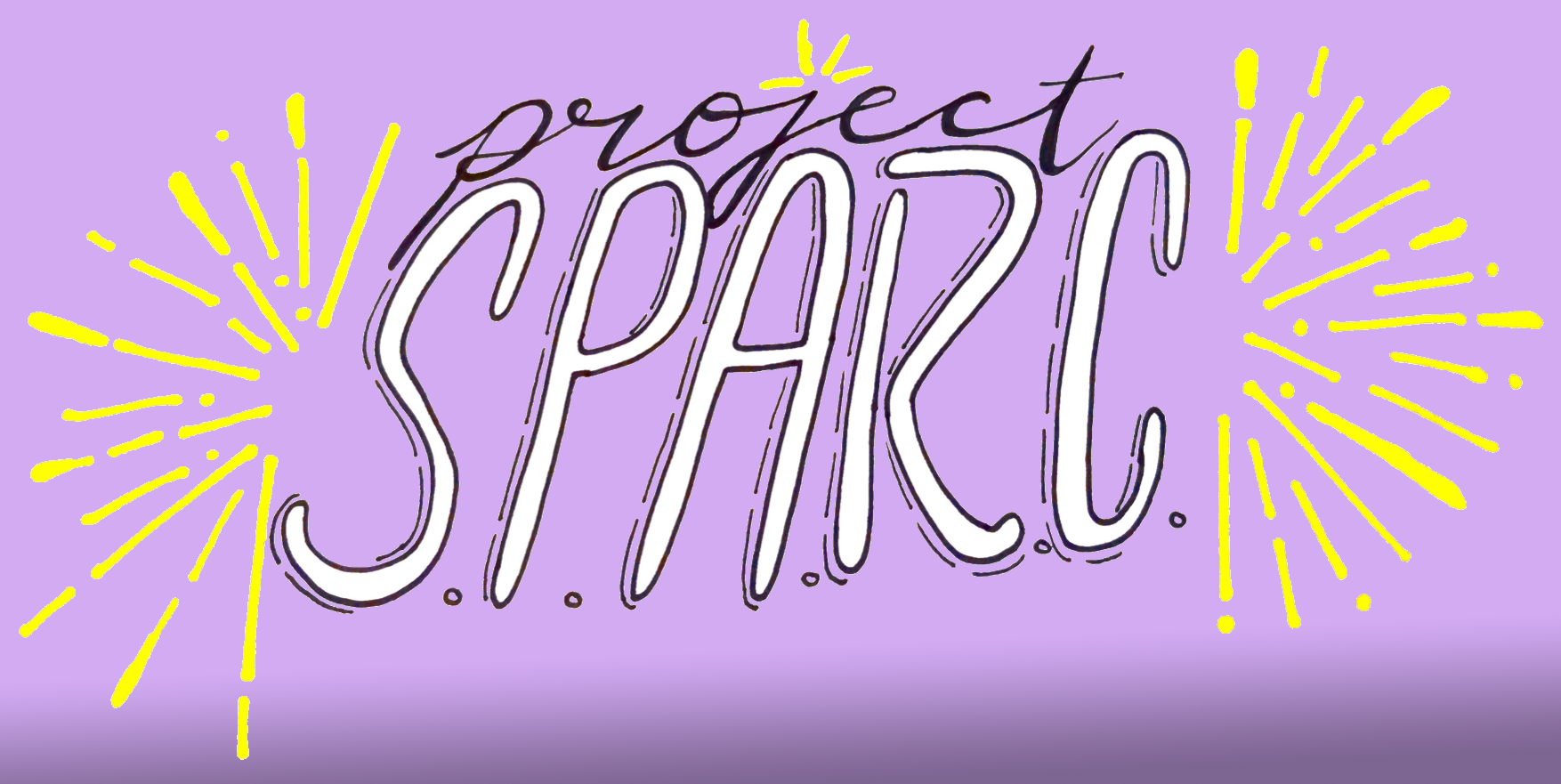Before launching our interviews, our SPARC team convened for a two-session training on interviewing skills. We brought in three guest speakers for the training to share their unique knowledge and support team learning: Iohann Vega, Director of Media Engagement at Holyoke Media, Jo Glading-DiLorenzo, journalist and former director of Project Coach, and Nancy Zigler, Assistant Director of the Jandon Center for Community Engagement at Smith College.
We started the session by discussing the goals of our interviews, specifically gathering stories and narratives that will provide rich information about the topic we are studying. Professor Sam Intrator spoke about asking questions specifically with the goal of inviting stories that illuminate the relationships and experiences that help young people develop and become who they are as adults. Sam interviewed Yesenia Valentin in a fishbowl format to showcase the layers of meaning that can come out of a conversation that invites storytelling to occur.
Together, the team discussed the three big skills of interviewing: 1) Setting the scene (and building rapport), 2) Keeping the conversation rolling, and 3) Finishing strong. For setting the scene, Erin DeCou shared tips about rapport building by talking about some of the following tips on connecting with strangers: be real, be curious, be naive, be grateful and listen actively. The team then broke into small groups to practice the opening script of our new interview guide.
Next, we discussed ways in which to ‘keep the conversation rolling.’ Here, Jo and Iohann provided an example conversation alongside tips to “make words fly” including follow-up questions and high-facilitative responses. Nancy Zigler spoke about deep listening, a skill that takes active listening to the next level, and demonstrated the skill by interviewing Sheena Nomura, one of our SPARC Fellows. After each of these demos, team members practiced the skills in small groups.
As a team, we discussed the importance of creating a welcoming and warm interview environment, and acknowledged that working hard to create this is even more important in a Zoom/virtual setting. Key strategies to do this that we discussed include: showing genuine appreciation and gratitude, reflecting back what the person speaking says, listening actively and asking thoughtful followup questions.
 Each session ended with a brief discussion of field notes to be used as a way to document and reflect on team meetings, interviews, etc., which we will continue to do after each SPARC interaction moving forward. When reviewing our team’s reflections, some of the following stood out: “Something that stood out to me was the focus on building a genuine conversation with your interviewee. Jo and Iohann’s demonstration showed that by being an active listener, you get to understand what the person said and simultaneously allows the interviewee to expand on their response.” Additionally, another team member noted, “I was reminded to show my appreciation to others and their time, to remain curious, to know my script, and to remember that there is always something to learn. These takeaways will certainly help me to create a safe and inviting space for the interviewee.”
Each session ended with a brief discussion of field notes to be used as a way to document and reflect on team meetings, interviews, etc., which we will continue to do after each SPARC interaction moving forward. When reviewing our team’s reflections, some of the following stood out: “Something that stood out to me was the focus on building a genuine conversation with your interviewee. Jo and Iohann’s demonstration showed that by being an active listener, you get to understand what the person said and simultaneously allows the interviewee to expand on their response.” Additionally, another team member noted, “I was reminded to show my appreciation to others and their time, to remain curious, to know my script, and to remember that there is always something to learn. These takeaways will certainly help me to create a safe and inviting space for the interviewee.”
Overall, the SPARC team left this session with some of the tools necessary to be informed, attentive, and interested interviewers within the greater Springfield and Smith College community.
